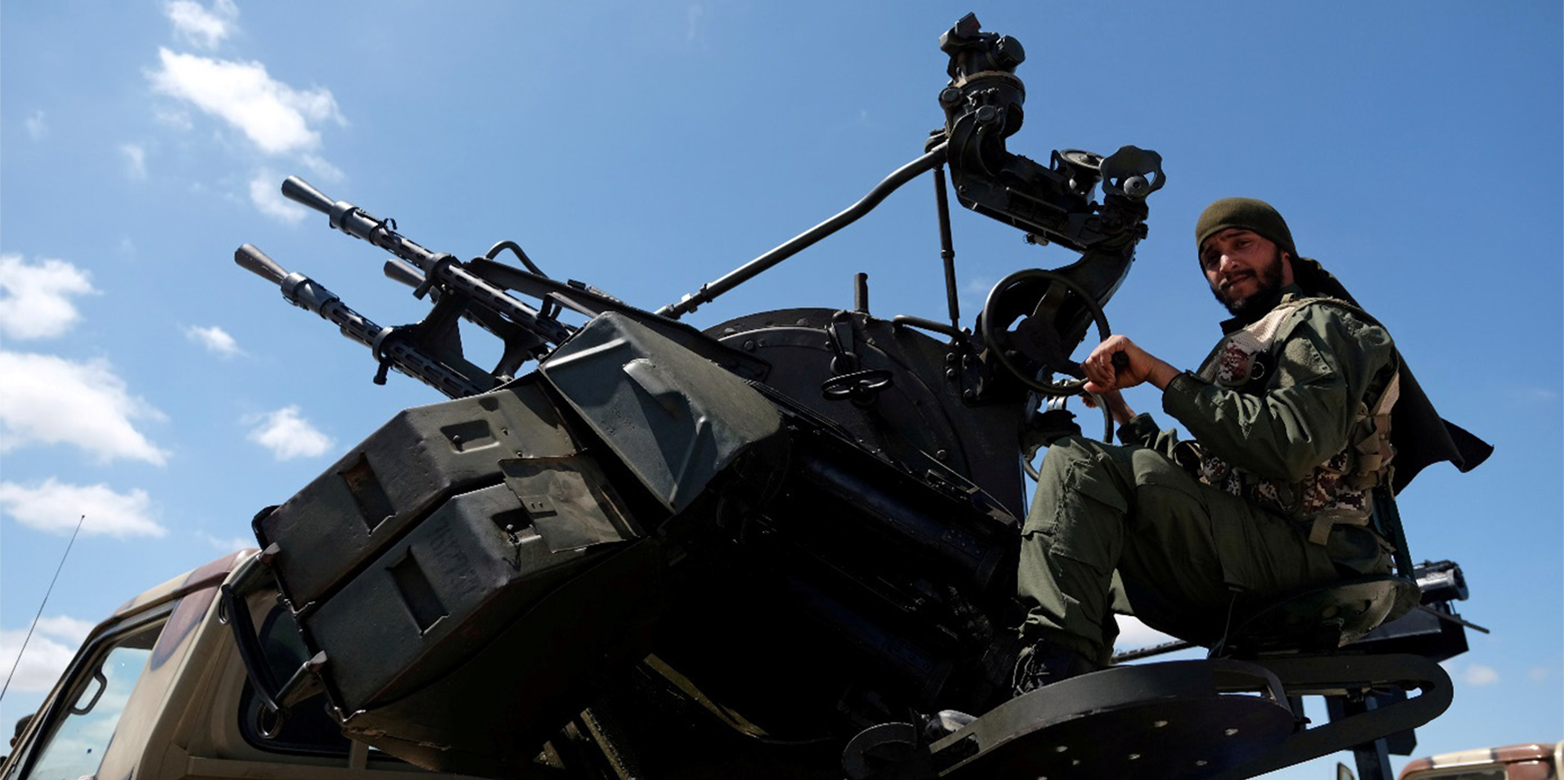An ‘Etroika’ to Advance Europe’s Policy on Libya
Europe must seize the opportunity provided by a local shift in the military balance to develop a more coherent and unified position on the Libyan conflict. In this CSS Policy Perspective, Lisa Watanabe argues that failure to do so could leave it sidelined by Turkey and Russia.

A member of the Libyan National Army (LNA), commanded by Khalifa Haftar, heads out ofBenghazi to reinforce the troops advancing to Tripoli. Esam Omran Al-Fetori / Reuters
Key Points
- Germany, France, and Italy should create a new format – a so-called ‘Etroika’ – to advance a more unified European position on Libya, as well as a more robust EU contribution to the implementation of the Berlin Process.
- The Etroika should use its influence with the local conflict parties, Turkey, and Russia to lay the foundations for both a permanent ceasefire and an EU contribution to a UN-led ceasefire monitoring mission in Libya.
- Germany’s presidency of the EU Council should be capitalized on to advance (i) an EU contribution to a UN-led ceasefire monitoring mission, (ii) a better use of sanctions to punish illegal oil exports from Libya, and (iii) a more even-handed monitoring of breaches of the arms embargo, as well as sanctions to punish those violating it.